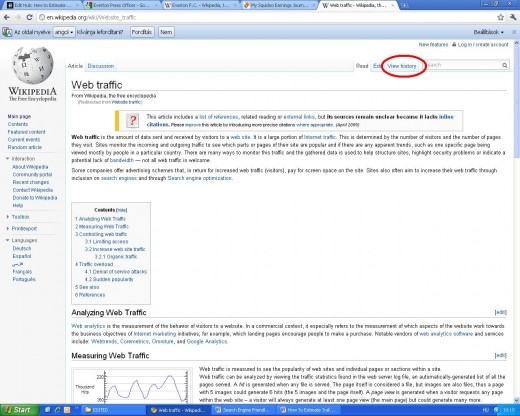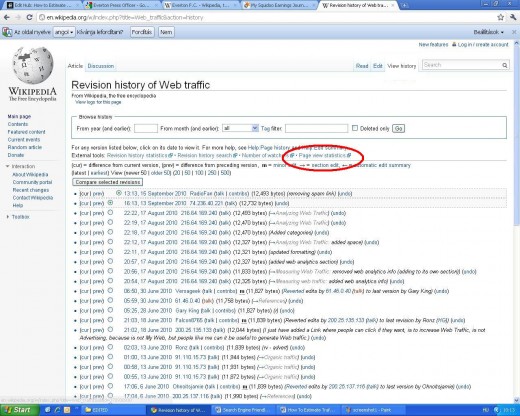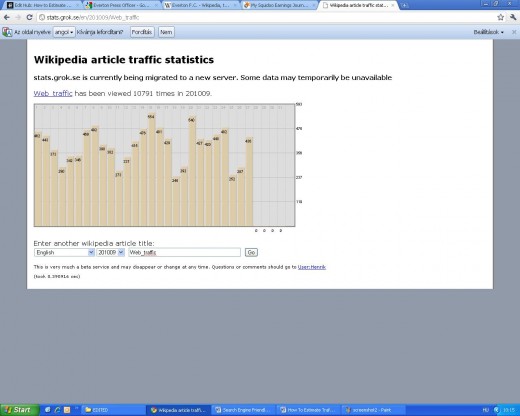How to Estimate Traffic to Your Future Articles, Blog Posts, HubPages Hubs, or Squidoo Lenses
When you are doing your keyword research, the figure that say how many times that key phrase is search for, is misleading, because it describes the TOTAL SEARCHES, not hits to a page. Most likely more than one webpage will compete for that key phrase (unless it is a very tight niche), so the total number of searches will be spread out among the search results, with, of course, the top positioned articles, blogposts, etc., receiving the majority of those hits. This is why it is quite problematic to have a fair estimate of the actual pageviews to your page. However, I just realized a way to estimate the daily visitors that you might be receiving, if your article ends up within the first few results.
The key is Wikipedia, which tend to be the top of search results. If your articles, webpages, blogposts, etc., historically tend to rank close to the open online encyclopedia, than you can assume that your future article will do so also. Without further ado, here are the steps you need to take to check the traffic of each Wikipedia article:



When you are in an article at Wikipedia at the top right of the article box there is a tab that says "View history". When you click that, on the page that gets displayed, in the second line, where it says "external tools" click the link at the end, which says "page view statistics" it will show a graph of the daily views of that Wikipedia. If your search engine ranking is close to that of Wikipedia, your page views can be assumed to be similar.
So, that's it; that is how you can have a rough estimate of the daily visitor you are going to get for your article, if you manage to rank close to Wikipedia. How do YOU estimate the traffic you are going receive four your article? Tell us in the comment section below!












